Julie Lessiter works to unleash new academic opportunities and growth at TXST’s Round Rock Campus
By Matt Joyce
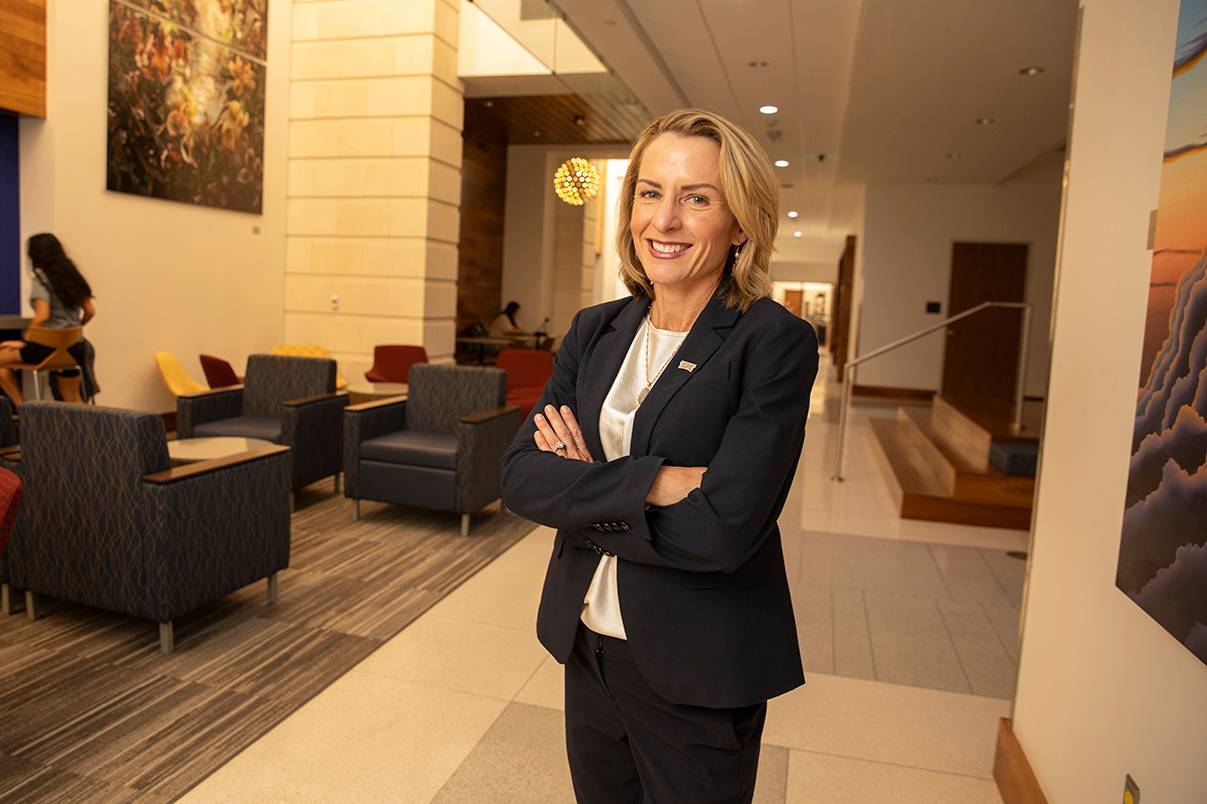
It’s been a busy three months for Julie Lessiter, Texas State University’s first-ever vice president for the Round Rock Campus. Since starting her new role in August, Lessiter has navigated a jam-packed schedule of meetings with everyone from local government officials to high-tech industry executives, high school administrators, and her TXST colleagues.
Lessiter’s charge is to transform the 110-acre Round Rock Campus as part of President Kelly Damphousse’s Hopes & Aspirations High vision for TXST. The goal includes expanding community and business partnerships; increasing campus infrastructure; and ultimately, growing student enrollment from the current count of 1,800 students to 10,000 by 2030.
“I’m at the stage where I’m learning a lot about operations here at the Round Rock Campus, Texas State, and the educational structure in general in Texas,” Lessiter says. “There’s so much potential here in this region. This really is a place where we can have an impact and do something transformational with education here in Central Texas.”
A native of England, Lessiter moved to the United States when she was 18 on a tennis scholarship at Northwestern State University of Louisiana. She also ran cross country and the 10,000-meter race for the track and field team.
She credits her experience as a student-athlete with helping prepare her for a higher education career that started in athletics administration and moved into academic administration, most recently as vice chancellor at Louisiana State University Shreveport. Lessiter still runs multiple days a week and plays tennis on the weekends. “Running keeps me grounded,” she says.
At the Round Rock Campus, Lessiter spearheads an institution with a focus on health professions and a growing slate of offerings in other academic disciplines for bachelor’s and master’s degrees.
“Being able to have an impact on students and being able to change lives is what gets me out of bed in the morning,” Lessiter says. “That’s incredibly important to me.”
What are your early impressions of Texas and the Round Rock Campus?
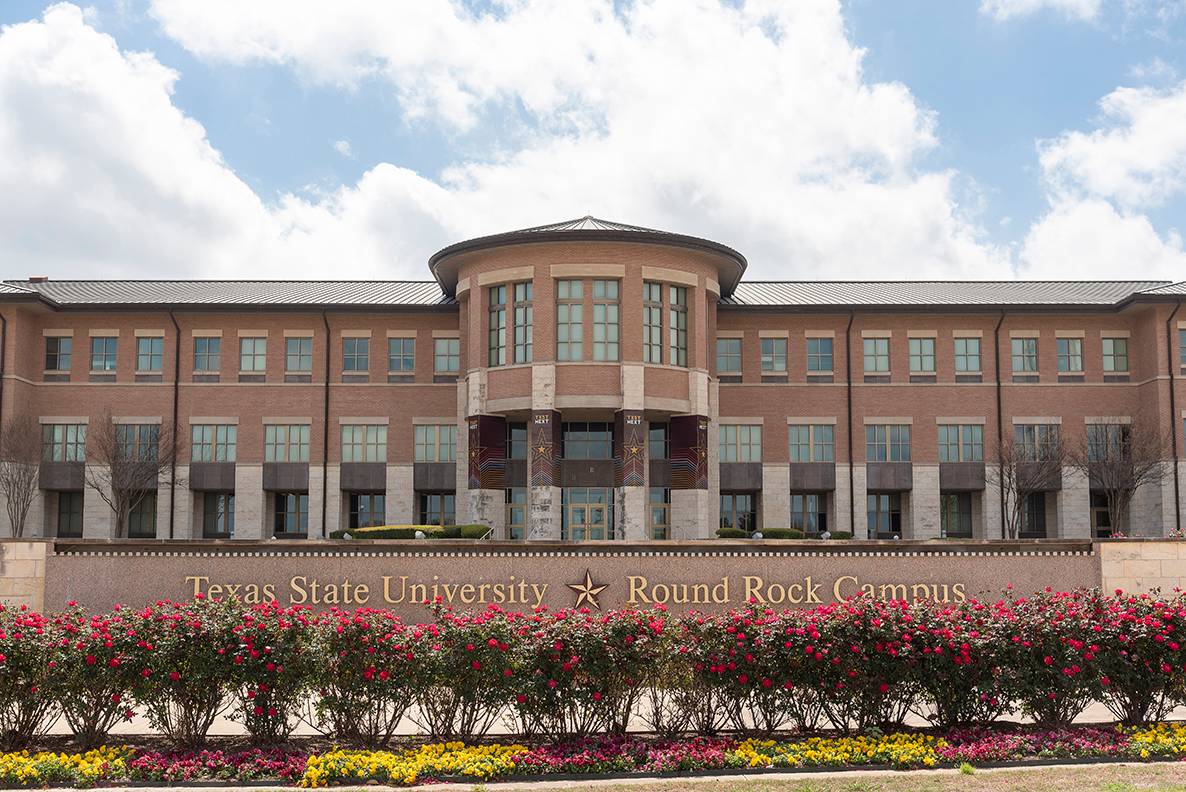
I absolutely love it. Particularly at the Round Rock Campus, there’s so much opportunity. The community has been very open and welcoming. They want us to succeed. One of my main focuses right now is making sure people in the community know about Texas State’s Round Rock Campus and also expanding the academic programs. It’s important to expand them because there aren’t too many other public degree-granting institutions in the area. This is a great option for students who perhaps are first generation, work a couple of jobs, or are place bound and want to earn a degree, advance in their career, and create a better life for themselves and their families.
Why were you interested in this job?
Central Texas is a growth corridor with the explosion of innovation companies coming to the area. When we’re looking at higher education and growing enrollments, Central Texas is a place that I think has a lot of opportunity. And then when I came to campus and saw the facilities and met the people, I was like, my goodness, this is a great place. There’s so much potential. You already have the health programs here. There’s potential to build out some professional programs that would help with the workforce and all of the industry that’s moving to the area.
What are your primary goals for the Round Rock Campus?
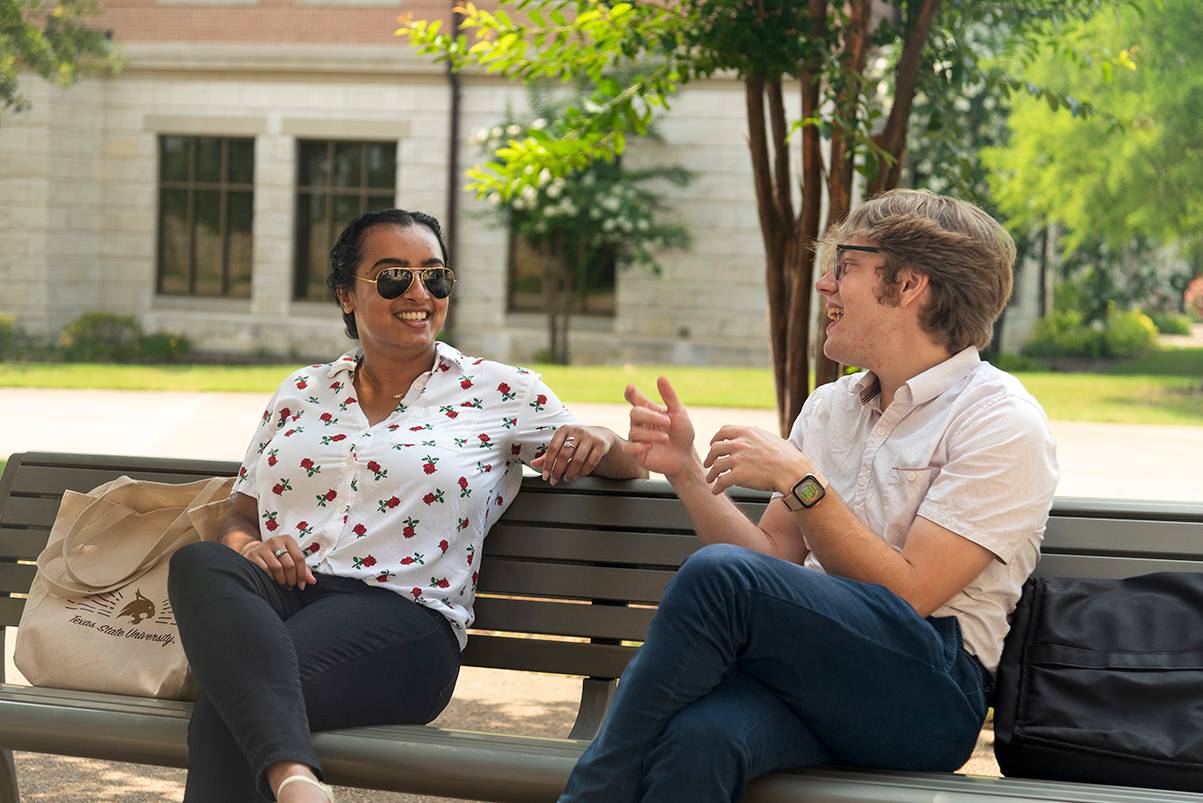
I have three primary goals—people, programs, and partnerships. So, taking care of the people, building community; adding programs to give educational opportunities for students in the area; and then partnerships, whether that’s with other higher ed institutions in the area or industry to help build a workforce pipeline. But that also helps our students to be able to get their foot in the door and to be able to launch their careers. Community partnerships are also important. We’ve got over 10,000 alums in the Williamson County area. Being able to give them an opportunity to feel pride and show their pride about Texas State is important. They’re always welcome on our campus, and we’re having some specific events for them, whether that’s watch parties for football or other events to build alumni engagement.
Can you elaborate on TXST’s plans for a life sciences incubator at the Round Rock Campus?
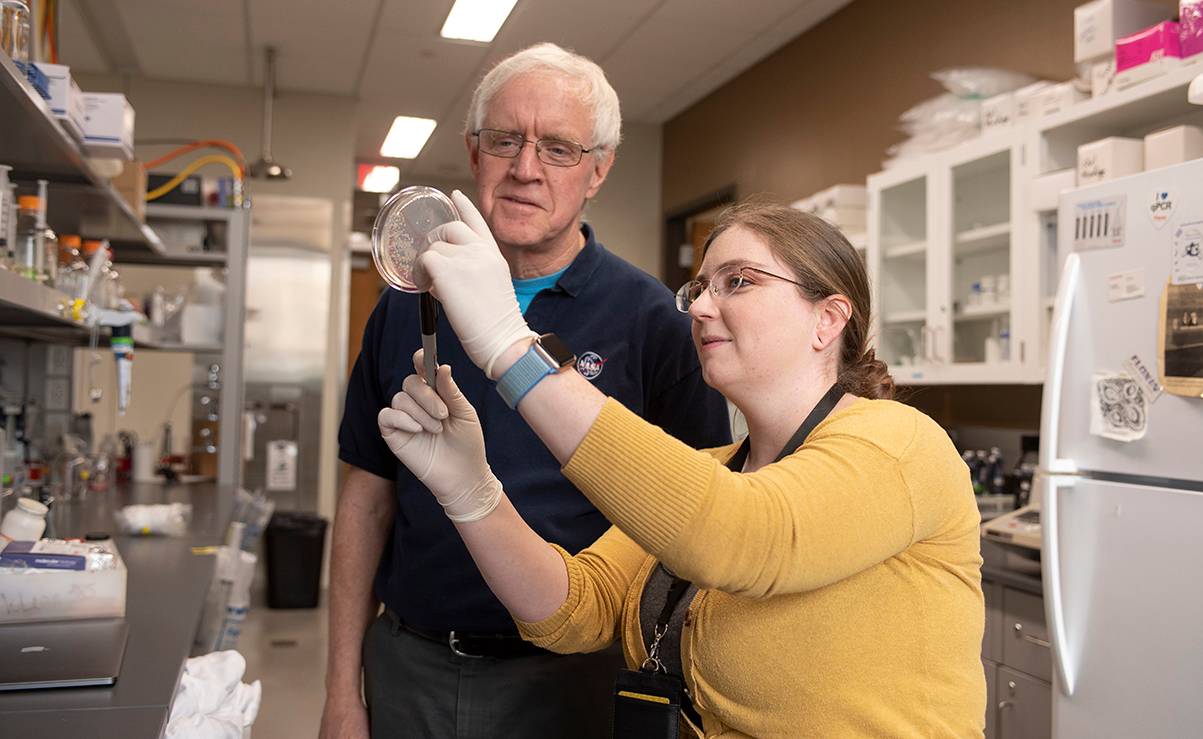
It’s a partnership with the Round Rock Chamber of Commerce and will be part of this life sciences ecosystem that Round Rock is creating so that we can attract startups in this industry. We’ll be able to tap into faculty expertise and boost faculty research, and our students will be able to get hands-on learning experiences. The users would be startup life science companies, which will also be relevant to our business and entrepreneurship programs and perhaps some engineering and health programs. It’s a real collaboration around that incubator space.
What’s the schedule for building the incubator?
It’s gone out for RFP and groundbreaking should happen by spring 2024.
What brought you from your hometown of Southampton, England, to the United States?
I was a tennis player, and I knew nothing about the United States other than what I’d seen on TV. And this was back before the days of the internet, so all recruitment took place over the phone. I ended up going to Northwestern State in Natchitoches, Louisiana. I loved the coach who was recruiting me there. A very long story short, I also ran cross country and track, so I was a three-sport athlete.
How do students benefit from participating in athletics or other extracurricular activities?
I’m a true believer that participating in extracurricular activities prepares you so well to be productive in the workplace. For me it was athletics. You have to have good time management skills. You have to be able to set your priorities. You have to have a strong work ethic. You have to know how to catch up if you’re behind, like if you missed days because you’re out competing, representing your institution. I think it gives you a lot of institutional pride. All of the things athletics teaches you beyond the actual sport really help you to be successful in your career. When we hire people, we want to know if they have the work ethic. Are they resilient? Can they come back from making a mistake and still show up and still be enthusiastic and still come and work hard the next day? I think athletics teaches you a lot of those skills.
President Damphousse’s goal is growing Round Rock Campus enrollment to 10,000 students by 2030. How do you make that happen?
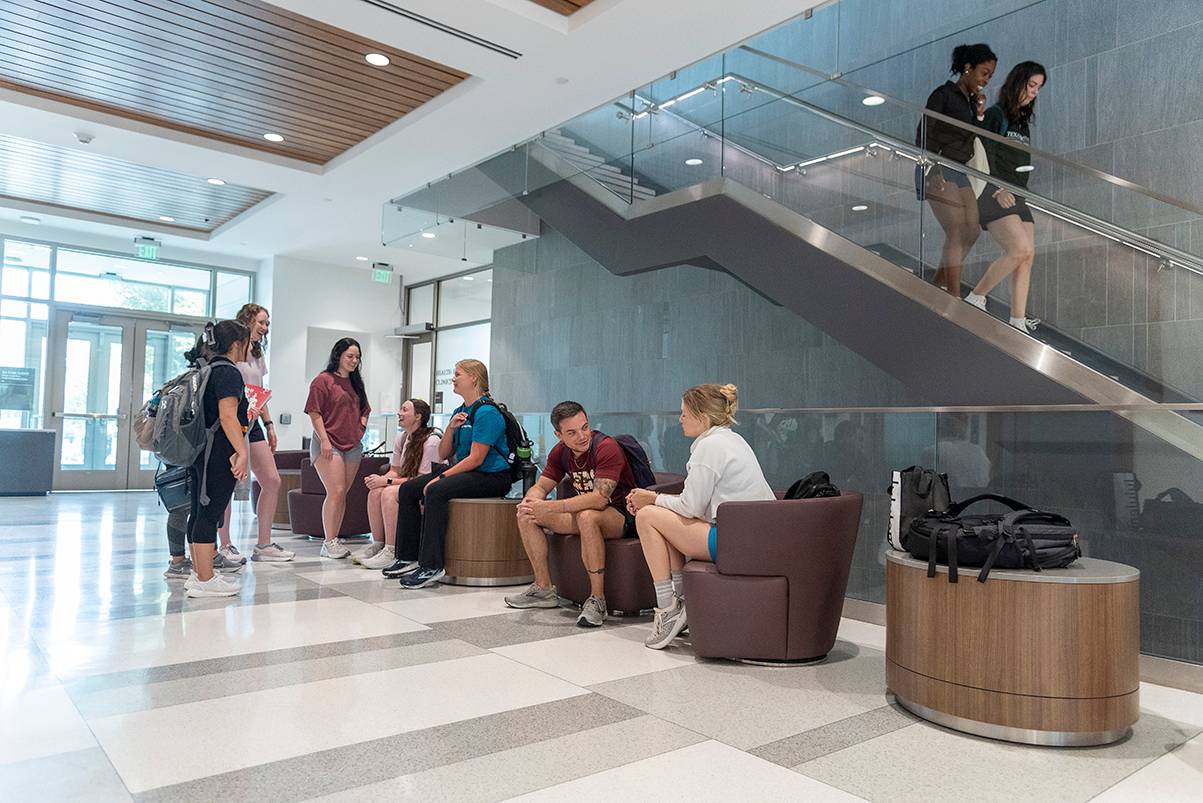
First of all, academic programs. You have to have the programs that meet market demand. We’re focusing on career-oriented programs, professional programs. We’re going to be very focused on workforce pipelines straight into employment. Additionally, we have to assist students in career placement, whether that’s through job shadowing, clinical experience, internships, or simple activities such as how to write an effective résumé. We haven’t done our job as educators if we think learning stops outside the classroom. It’s our obligation to prepare students to be successful in life and career after they earn their degrees.
How do you create a more collegiate atmosphere on the Round Rock Campus?
I’m putting together an events committee with faculty and staff, as well a student advisory board to the vice president that can gather input from the stakeholders in what they want to see to help build community. Of course, we have the picnic when the president comes, we have the “Coffee with Kelly” and “Kindles with KDamp” events. But we’re also doing things that bring people together such as a Halloween costume competition and a Homecoming door decorating contest—activities to build that community.
Are there plans to build residence halls to make the Round Rock Campus more like a traditional college campus?
That’s one of the things that we’re doing our research on to look at need. You have a lot of people in the Williamson County area who are looking for four-year degree options and are place bound. They would really benefit from having the option to complete degrees at the Round Rock Campus but perhaps would prefer to live at home. Conversely, we have populations of students who spent two years at the San Marcos Campus and transfer here for their educational program who are looking for a place to live. I know the cost of housing, such as apartment living, is expensive. That’s a challenge. Looking at how we help students who need housing options is incredibly important. So yes, it’s definitely something we’re looking into and near the top of our priority list.
If a student is taking an MBA course or an upper-level course at Round Rock, are they typically driving from Austin or San Marcos to take that course?
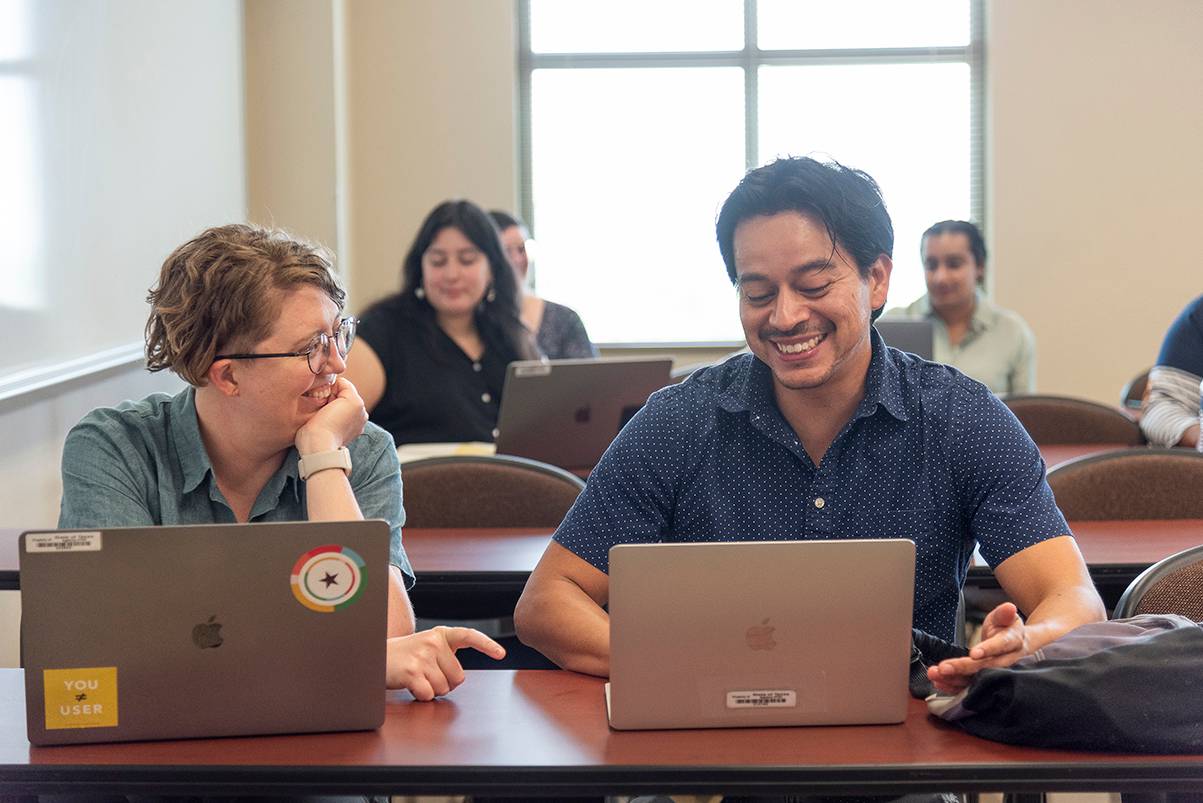
It’s really all sorts of people. The people currently taking classes in Round Rock are living local; or it may be someone who’s in San Marcos and the class they need for their academic program is offered in Round Rock; or they may be in North Austin and don’t want to drive through the traffic every day, so they’re taking some of our classes. They may live in Cedar Park, and this was a convenient place for them to take a class. You can’t say it’s one type of person.
What’s one of the cool things about the Round Rock Campus that readers may not know about?
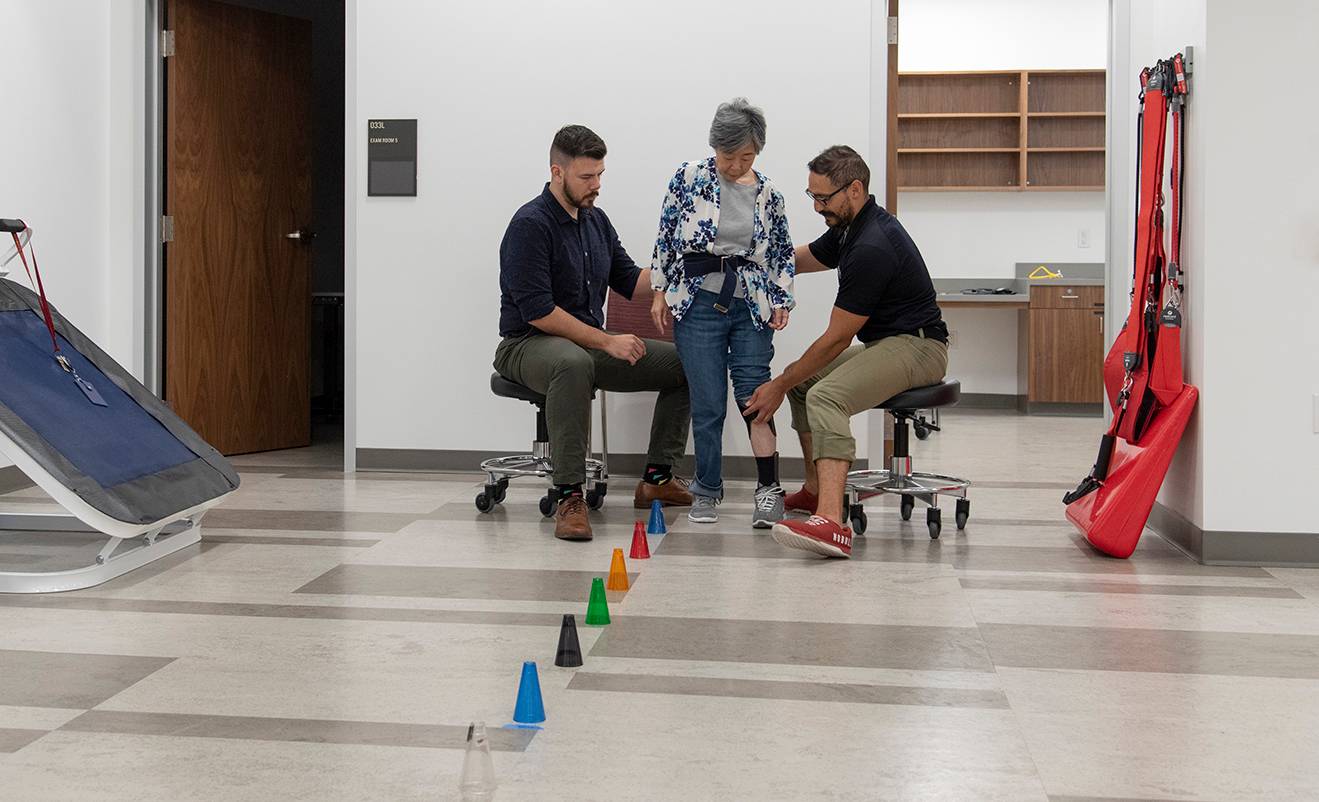
One of the things that we do is our community clinics for residents of Williamson County. They’re run by our faculty and students, and they operate on a pay-as-you-can basis. There’s a speech-language clinic. If you have a young child that isn’t speaking, you can bring them in to see if they have speech issues. That’s just one example. There’s also physical therapy clinic, a sleep center, an audiology clinic, and community counseling and wellness center. It’s a great resource that the community needs to know about.★